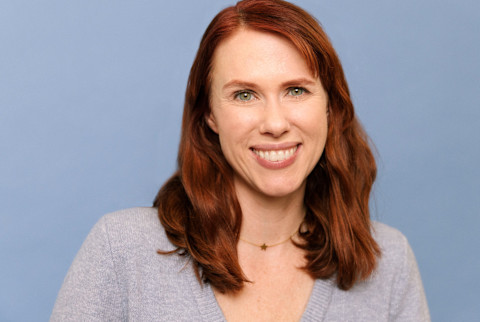
We all want to find ways to heal our ailments, but conventional medicine doesn't always have the answers. No one knows this better than New York Times best-selling author Kelly Turner, Ph.D., who has been studying what she calls "radical remissions" for years. She joined me on the mbg podcast and described this term as "the remission from cancer that occurs in the absence of conventional medicine, or after conventional medicine has failed."
In her book Radical Remission, she describes her interviews with people who were told they had days to live but ended up surviving and thriving some 25 years later. Kelly pioneered this research and traveled the world for a year to 10 different countries to find the radical remission survivors and their healers. During her experience, she found nine common healing factors among the survivors, which she explains in her book. Among these are the following five, which you can easily get started on today and, as Turner says, are beneficial whether you have cancer or not:
Deepen your spiritual connection practice.
Kelly explained that a connection to the spiritual realm is incredibly important for healing. She pointed out that a spiritual connection looks different for everyone. For some, it's a meditation practice while for others, it's prayer, gardening, or running. In her research, she found that all of the survivors had different ways of connecting to their spiritual side but that it played a role in their healing. We discussed meditation in greater depth, and Kelly explained it as "a spiritual connection practice that's not only strengthening your physiology, increasing levels of oxytocin and serotonin— which in turn leads to increased numbers of white blood cells and natural killer cells." No matter how you decide to deepen your spiritual connection, Kelly recommends spending at least 15 minutes a day in practice, which was the common threshold she found among the radical remission survivors.
Take herbs and supplements.
When she first set out on her yearlong journey, she hoped to find one or two herbs or supplements that were doing the trick, so there could be a clear answer. What she found was that in every place she went, the survivors were taking different native herbs and supplements. Instead of focusing on which one or two was the answer, she found three significant trends in what the herbs and supplements did for the survivors. The first was the people who were healed from cancer were taking supplements to digest their food better; the second was they were taking herbs or supplements that detoxified the body of parasites, candida, and heavy metals; and the third was they were supporting their body by boosting with things like vitamins B, C, D, and E.
Take control of your healing process.
There's a point where each of the survivors realized they needed to take their healing into their own hands after conventional doctors told them they should start counting down the days. Kelly highlighted the fact that she may revisit the phrase "taking control" in her second book because it's really more about empowering yourself, as the healing journey is one that cannot be controlled. In essence, she explained, the survivors embodied this key by empowering themselves when it came to their healing journey, through the understanding that no one knows them better than they know themselves.
Radically change your diet.
Each survivor started with a different set of the nine keys depending on how dire the need was. For some people, an unhealthy diet was what they struggled with most, while for others, the most pressing issue was childhood trauma. No matter which keys the survivors started with, Kelly found that each shifted their diet to include more fruits and vegetables. She talked about a study that showed, "if you switch to 50% fruits and vegetables in your diet, you are going to live longer, regardless of whether you have cancer or not."
Release suppressed emotions.
Releasing suppressed emotions is an essential part of the healing process, said Kelly. "Every thought you have leads to an emotional state, and your emotional state instantaneously affects your immune system." If your thoughts are tied up in built-up negative emotions over years and years, it can negatively affect your health. You can begin by releasing any buried emotions by answering the following questions Kelly posed: "What suppressed emotions do you have in your body that you need to work on letting go?" "Is it just stress, or could it also be grief or trauma?" "What about anxiety or fear of the future?" On the flip side, another one of the keys is increasing positive emotions, but this is quite different, and each one needs to be dealt with differently. Working toward letting go of pent-up emotions may support your healing no matter the state of your health.
The process of healing does not have a set prescription or a list of steps. Each of us will have a different path that includes things we put into our body and the things we take away. These five keys are just a few of the nine healing keys that Kelly discovered as significant themes in the healing journeys of the radical remission survivors. She emphasized that you don't need to have cancer to benefit from these ways of living.
While she does not have research to show whether or not these factors are preventive, her colleagues and researchers have done multimodal longitudinal, randomized studies to show that these factors individually can help your immune system. These nine keys were not things the survivors did for a day and found they were healed; they made a commitment to the keys for life and saw incredible results. Wherever you are in your healing journey or the state of your health, supporting your immune system through these physical, emotional, and spiritual ways of being will be helpful.
